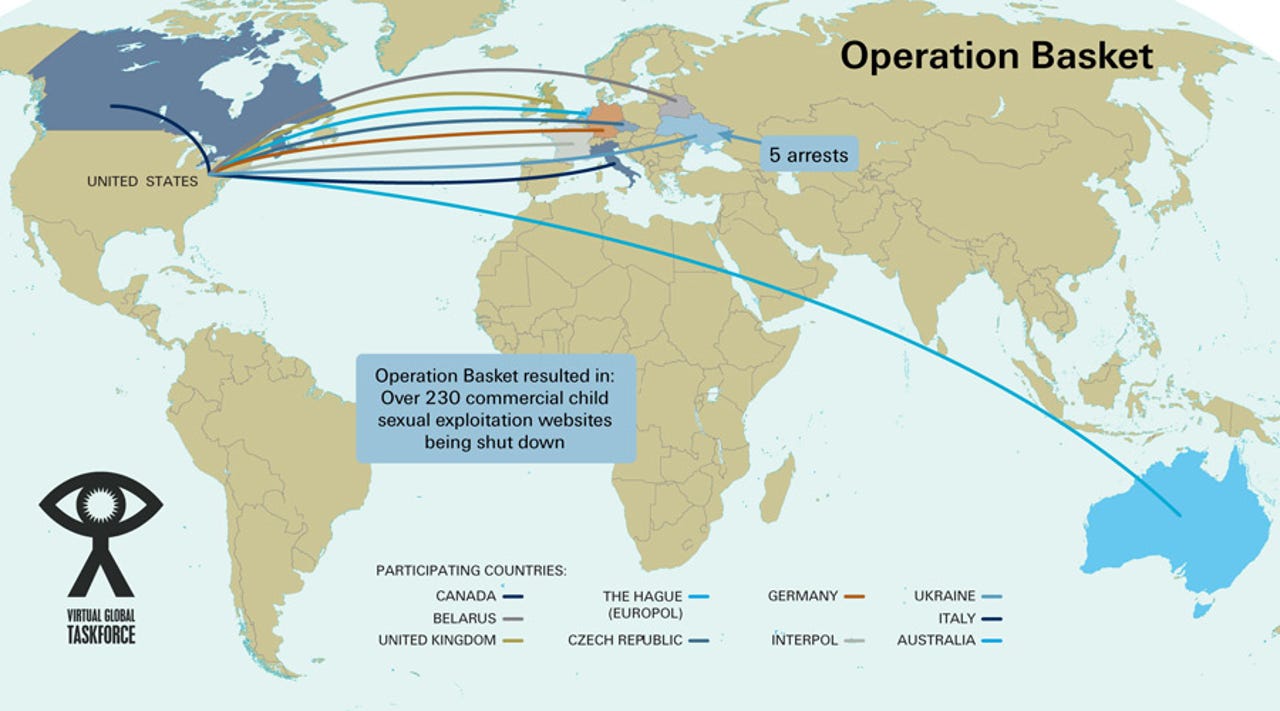Telcos, devs help feds bust crime ring

Internet service providers (ISPs) and software developers are assisting Australian Federal Police (AFP) to crack peer-to-peer file-sharing networks so they can locate Australians who are accessing online child exploitation materials.

Operation Basket (Credit: AFP)
Peer-to-peer networks have remained a tough nut for law enforcement to police so software developers have been enlisted to help discover ways to bust users sharing illegal material, the AFP said today.
Meanwhile, Australian telcos have been asked to track potentially thousands of IP addresses accessing child exploitation material in the wake of a global four-year investigation dubbed Operation Basket. The operation resulted in the destruction of some 230 pay-walled websites selling the content.
The sting involved law enforcement from eight different organisations, including police from the UK, the United Arab Emirates, Canada, New Zealand and Interpol. Together, the team was called the Virtual Global Taskforce and was led by US Immigration and Customs Enforcement.
Federal police assistant commissioner Neil Gaughan said the industry is coaching the AFP about how to mitigate the "significant threat" of peer-to-peer as a medium to share child exploitation material.
"We receive lectures from industry as to the tools they can bring to law enforcement for the peer-to-peer environment. Software developers have showed us tools to access peer-to-peer," said Gaughan.
"It's a problem, but we are on top of it. I can honestly say we are making more arrests now in the peer-to-peer space than we were six and 12 months ago and that will continue."
The website had sold access to more than 30,000 customers. Local telcos are tracing IP addresses to determine how many are Australian.
"30,000 is a lot," Gaughan said when asked if he expects some perpetrators were Australian.
He said ISPs report child exploitation websites to the police everyday.
The taskforce uses image recognition technology such as Microsoft's Child Exploitation Tracking System to determine if exploitation images relate to new or old cases, and to determine if objects can tie a crime to a specific geography.
"For instance, we can establish what country a shopping bag in a photo came from."
Gaughan said technology is "invaluable" to the taskforce.
The AFP announced this week that it is seeking a new investigation, intelligence and incident management system to handle large, complex investigations. It will replace the current Police Real-time Online Management Information System.